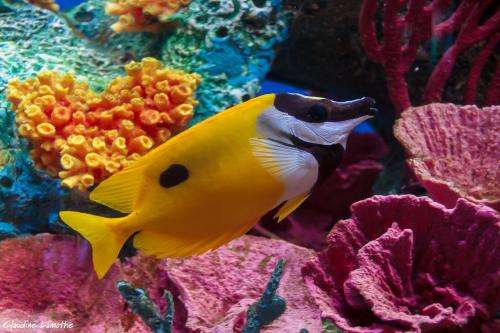Algae under threat from invasive fish

Tropical fish invading temperate waters warmed as a result of climate change are overgrazing algae, posing a threat to biodiversity and some marine-based industries.
Researchers have reported Japan and the Mediterranean show substantial evidence that the intrusion of tropical herbivorous fish has caused widespread loss of canopy forming macroalgae and the trend could be global.
According to their investigation similar trends are evident in parts of the US, South Africa, Brazil, eastern Australia and Western Australia where kelp forests have declined and in some cases appears to be the result of feeding by tropical or subtropical herbivorous fish.
In Western Australia, they found macroalgal species had collapsed following an extreme heat wave in 2011 when temperatures rose up to five degrees for weeks.
They describe emerging evidence from WA researchers Thomas Wernberg and Barry Hutchins of a southward movement of tropical and subtropical species into temperate waters at that time, preventing the macroalgae's recovery as they feed off the small recruit algae.
WA Department of Parks and Wildlife researcher Dr Shaun Wilson was part of the team investigating the trend worldwide.
He says while evidence of this in WA is anecdotal, the trend is well acknowledged in other parts of the world.
Feeding impact felt worldwide
For example, the linking of the tropical Red Sea and temperate Mediterranean Sea via the Suez Canal in 1869 allowed two species of rabbitfish (Signanus rivulatus) to move through and feed on macroalgae reducing it in some places up to 60 per cent.
In southern Japan increases in ocean temperature and a rise in tropical fish numbers coincided with the dramatic decline in kelp beds over three decades.
This increase led to the complete collapse of the abalone fishery in the region by 2000.
"That has implications for all the fish and invertebrate that reply on macroalgae for habitat," Dr Wilson says.
"There is herbivory in temperate systems now; what's alarming is that tropical herbivory by fish tends to be a lot more diverse and a lot more intense.
"The present systems may not be well enough equipped to deal with that new source of herbivory and that can have flow-on effects on the environment.
"Because we have a warming climate even winter is warmer than it was previously, providing conditions for fish to stay and continue to eat over the winter, so the fish are continuously removing that algae and preventing it from growing back."
More information: "The tropicalization of temperate marine ecosystems: climate-mediated changes in herbivory and community phase shifts." Vergés A. Proc Biol Sci. 2014 Aug 22;281(1789). pii: 20140846. www.ncbi.nlm.nih.gov/pubmed/25009065
Provided by Science Network WA



















